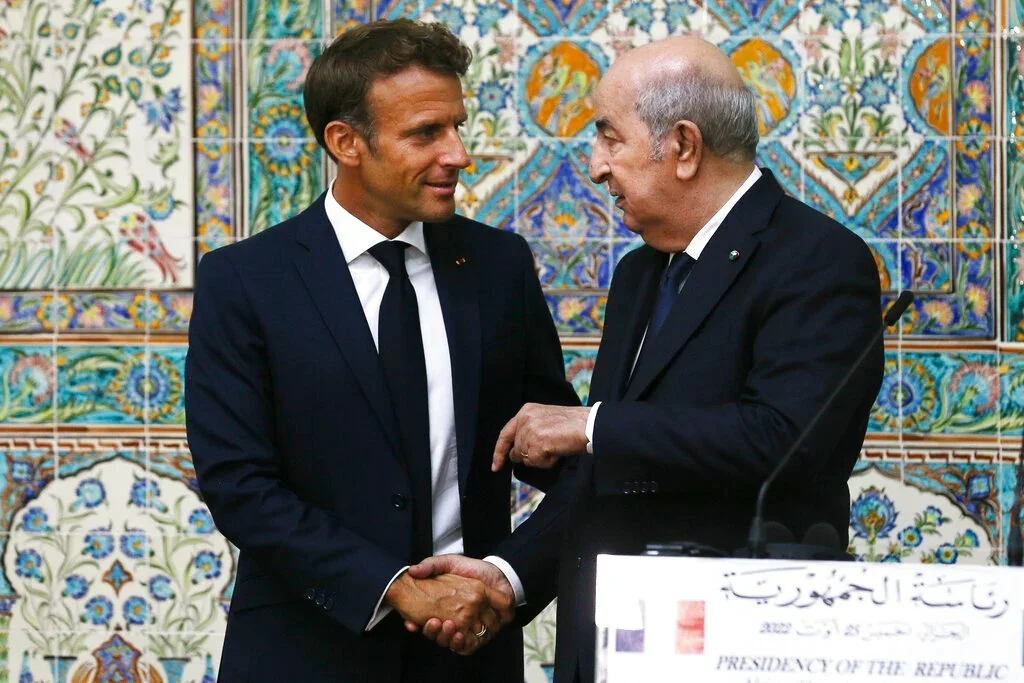Tensions Emerge: Explaining the Escalating Tensions between France and Algeria
On the 26th of February, French Prime Minister Francois Bayrou announced that his government was in the process of reexamining the 1968 migration pact, a historical agreement that has facilitated Algerian migration to France for decades. The proposed revision represents a stark shift in Franco-Algerian relations, stirring diplomatic tensions between the two nations. Further exacerbating the situation, Bayrou also stated that a list of Algerian nationals residing in France, which the French government would like to report, are to be presented to Algiers.
Bayrou’s declarations have provoked outrage in Algeria, where memories of French colonial rule and the brutal war for independence remain deeply ingrained in the national consciousness. Algeria, which gained its independence from France in 1962, has responded to these developments with mounting resistance, framing Bayrou’s announcements as part of a broader pattern of French attempts to dictate Algerian affairs.
The unraveling of the two countries’ relationship can be traced back to February of this year when an undocumented Algerian national, reportedly suffering from schizophrenia, launched a stabbing attack in the eastern French city of Mulhouse, killing one person and injuring six others. The attacker was under an Obligation de Quitter le Territoire Français (Obligation to leave French territory) and was meant to be deported to Algeria. However, Algiers refused to accept this deportation order, which has led to intensifying debates over immigration policy and national security.
This incident became a rallying point for the French right wing, which swiftly condemned the Algerian government for its reluctance to cooperate with deportation requests. In response, Algiers accused Paris of scapegoating its nationals for France’s domestic failures, further straining bilateral relations.
The situation deteriorated further with the arrest of Boualem Sansal, a renowned Algerian-born writer who had acquired French citizenship. A leading figure in Francophone literature, Sansal has long been known for his vocal criticisms of authoritarianism and religious extremism. His recent remarks suggesting that parts of western Algeria rightfully belonged to neighboring Morocco led Algerian authorities to charge him with terrorism-related offenses. His detention was met with sharp condemnation in France, where intellectuals and politicians alike viewed it as an attack on free speech.
The escalating tensions between Paris and Algiers must also be understood within the context of France’s ongoing political crisis. The snap elections called by President Emmanuel Macron in June 2024 resulted in a fractured political landscape, forcing Macron’s centrist allies to forge uneasy alliances with Les Républicains, a right-wing party which has increasingly focused on curbing immigration. As political instability looms over the country, French conservatives have strategically seized upon Algerian immigration as a means to consolidate their position ahead of the 2027 presidential elections.
By portraying Algerians as emblematic of broader immigration and security concerns, right-wing politicians are tapping into public anxieties. The recent surge in populist rhetoric targeting migrants has led to a hardening of France’s stance on deportations and border control. The proposed reassessment of the 1968 migration accord is thus not only a diplomatic maneuver but also a calculated domestic strategy designed to appeal to voters wary of immigration.
Beyond the realm of politics, France and Algeria maintain significant economic ties that complicate their increasingly adversarial diplomatic relationship. Algeria remains a key supplier of natural gas to Europe, a position that has gained renewed importance following Russia’s invasion of Ukraine in 2022. As European states scramble to diversify their energy sources and reduce dependence on Russian gas, Algeria has emerged as a crucial alternative provider. However, France’s shifting policies on migration and diplomatic disputes with Algiers could threaten these energy agreements. While Algerian gas exports are primarily directed toward Italy and Spain, France’s influence within the European Union could indirectly affect future negotiations concerning energy security and trade partnerships.
At the heart of the France-Algeria divide lies an unresolved colonial legacy that continues to cast a long shadow over their relationship. Many Algerians believe that France has never fully accepted their country’s sovereignty, citing past French policies that sought to maintain a degree of economic and political influence over its former colony.
From the controversial statements made by French officials about the nature of the Algerian War to Macron’s mixed messages on historical reconciliation, France’s approach to its colonial past has often been inconsistent. While Macron has taken steps toward acknowledging the atrocities committed during the war, including admitting to the systematic use of torture by French forces, his government has simultaneously pursued policies that reinforce the perception of French paternalism toward Algeria.
Algerian officials, in turn, have leveraged historical grievances as a means of consolidating domestic support. By positioning themselves in direct opposition to France’s policies, Algerian leaders bolster nationalist sentiment and deflect attention from internal socio-economic issues.
As tensions continue to mount, both countries must decide whether to further entrench their hostilities or seek avenues for diplomatic reconciliation. The upcoming months will be pivotal in determining the future of Franco-Algerian relations. If France proceeds with its plans to revise the 1968 migration accord and intensify deportations, Algeria may retaliate by reassessing energy agreements or restricting cooperation on counterterrorism efforts.
Conversely, a more measured approach, which would acknowledge mutual economic interests and the sensitivities of both states’ shared history, could pave the way for a more constructive dialogue. For now, however, the relationship between France and Algeria appears increasingly fragile, shaped as much by present political exigencies as by the enduring legacies of the past.
Image courtesy of AP via FreeMalaysiaToday, ©2025. Some rights reserved.
The views and opinions expressed in this article are those of the author and do not necessarily reflect those of the wider St. Andrews Foreign Affairs Review team.



